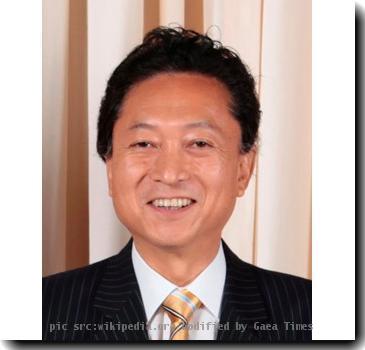Thousands in Tokyo protest US military bases on Okinawa, minister vows fight to eject troops
By Jay Alabaster, APSaturday, January 30, 2010
Protest held in Tokyo against US military presence
TOKYO — Thousands of protesters from across Japan marched Saturday in central Tokyo to protest the U.S. military presence on Okinawa, while a Cabinet minister said she would fight to move a Marine base Washington considers crucial out of the country.
Some 47,000 U.S. troops are stationed in Japan, with more than half on the southern island of Okinawa. Residents have complained for years about noise, pollution and crime around the bases.
Japan and the U.S. signed a pact in 2006 that called for the realignment of American troops in the country and for a Marine base on the island to be moved to a less populated area. But the new Tokyo government is re-examining the deal, caught between increasingly adamant public opposition to American troops and its crucial military alliance with Washington.
On Saturday, labor unionists, pacifists, environmentalists and students marched through central Tokyo, yelling slogans and calling for an end to the U.S. troop presence. They gathered for a rally at a park — under a banner that read “Change! Japan-U.S. Relations” — for speeches by civil leaders and politicians.
Prime Minister Yukio Hatoyama has repeatedly postponed his decision on the pact, with members of his own government divided on how to proceed. Last week he pledged to resolve the conundrum by May, just before national elections.
“The Cabinet is saying that it will announce its conclusion in May. For this reason, over the next few months we must put all of our energy into achieving victory,” Cabinet minister Mizuho Fukushima said at the rally, to shouts of approval from the crowd.
Fukushima — who has a minor post in the Cabinet and heads a small political party — wants the base moved out of Japan entirely. Hatoyama’s government must appease such political allies to maintain its majority coalition in parliament, and the public are increasingly vociferous on the U.S. military issue, even outside of Okinawa.
“I’m against having troops here. I’m not sure we can get them all out, but at least some of them should leave,” said Seiichiro Terada, 31, a government tax collector who attended the rally.
Terada said he traveled from his home in the central prefecture of Shizuoka, which hosts a Marine base at the foot of Mt. Fuji.
The deal with Washington calls for the Marine base in a crowded part of Okinawa to be moved to a smaller city called Nago. But last week residents of Nago elected a new mayor who opposes the move, ousting the incumbent that supported a U.S. military presence.
On the other side of the debate, a steady stream of U.S. officials have petitioned Tokyo to follow the agreement and maintain American troop levels in Japan, with U.S. Ambassador John Roos on Friday calling them “front-line forces” in case of emergencies or security threats.
Tags: Asia, East Asia, Japan, North America, Protests And Demonstrations, Tokyo, United States, Yukio Hatoyama
|
January 31, 2010: 10:21 am
Now America is on a tight budget, it requires the administration to prioritize the current policies. As we are aware, oil war and energy independence by no means go hand in hand. I’m not sure how many times I have imagined if the heart-rending war costs had been allotted for sustainable resources. In this respect, it leaves me speechless that the money borrowed following the heated debate over deficit is set to finance the extended mistake once again. From the perspective of potential oil demand, the costly war is not likely to catch up with overall demand, it would instead be better off to turn our attention to the speculation on oil exchange, coupled with the quest for alternative resources. With the same truth, the two prospective principal bills before Congress are sure to realize the equal benefits as a whole. Let’s see the woods, in place of a tree. Were the Republican party literally deficit-conscious, there might be striking changes in the tacks that has led to this crisis . Against this backdrop, the outcome of the Massachusetts special election is less likely to back up the claim citing voter frustration at federal spending and debt. In effect, Leaving behind the prior great concerns as to whether or not the intergovernmental stimulus package could work, it seems to have made some difference as a rule. While populous nations are devouring the dwindling resources, and America is still trying in vain to engage in the extended mistake sending its debt out of reach, global stimulus package more collective than the personal pocket is barely propping up the embattled economy, awaiting the remaining capital to be employed for the productive changes. Basically, such changes require bold investments before they take hold, instead of the vague motto, ” Do not add to the deficit ! ” . Again, war must be avoided at all costs ! Thanks A Lot ! |


hsr0601